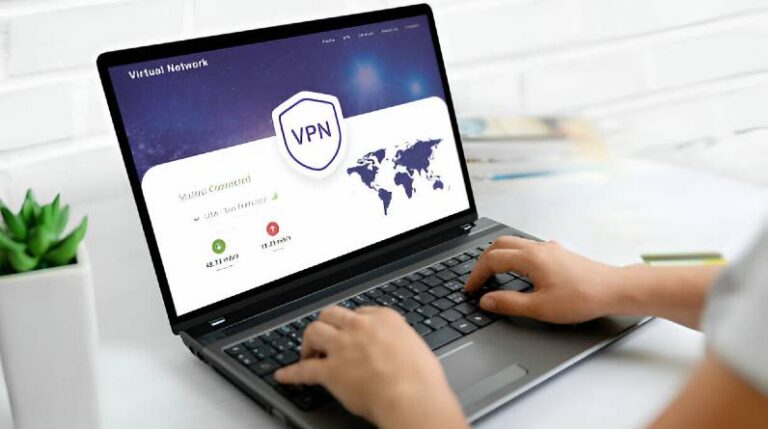In today’s digital age, privacy is no longer a given—it’s something users must actively protect. Whether you’re a remote worker logging into company servers, a traveler accessing public Wi-Fi, or a small business owner managing customer data, Virtual Private Networks (VPNs) have emerged as a go-to solution for safeguarding online activities. But is a VPN the cybersecurity silver bullet it’s often made out to be?
This article dives deep into the real pros and cons of using a VPN in 2025, drawing insights from the most current and credible resources available. Whether you’re considering a VPN for personal use or business operations, understanding its actual value—and limitations—will help you make smarter digital decisions.
What Is a VPN and Why Is It Used?
A Virtual Private Network (VPN) is a tool that encrypts your internet connection and routes it through a secure server, masking your IP address and location. The main goal? To enhance privacy, security, and unrestricted access to online content.
In 2025, VPNs are more widely used than ever, thanks to rising cybersecurity threats, increased remote work, and a growing demand for online anonymity. But like any tool, VPNs come with trade-offs, and it’s important to understand both sides of the coin.
Advantages of Using a VPN in 2025
1. Enhanced Privacy and Anonymity
One of the primary reasons people and businesses use VPNs is to maintain online privacy. A VPN masks your real IP address and prevents websites, advertisers, and even your internet service provider (ISP) from tracking your activity.
- For individuals: This means safer browsing, especially on unsecured public Wi-Fi.
- For businesses: It ensures sensitive company data isn’t intercepted or traced.
2. Secure Data Transmission
VPNs use encryption protocols to protect data as it travels across networks. This is especially vital for:
- Remote workers accessing company servers.
- E-commerce businesses managing customer transactions.
- Healthcare providers handling patient records.
In 2025, many top VPN services use AES-256 encryption, which is virtually unbreakable, and protocols like WireGuard and OpenVPN, known for speed and security.
3. Access to Geo-Restricted Content
VPNs let users bypass geographical content restrictions, enabling access to websites, apps, and streaming platforms that might be blocked in a certain region.
- Example: Watching U.S. Netflix while traveling in Europe.
- For businesses: Conducting market research across different countries.
4. Protection on Public Wi-Fi Networks
Public Wi-Fi networks in airports, cafes, and hotels are notorious for lacking security. A VPN adds a vital layer of encryption, shielding you from man-in-the-middle (MITM) attacks, which are increasingly common in 2025.
5. Improved Cybersecurity for Businesses
VPNs provide a cost-effective way for small and mid-sized enterprises (SMEs) to secure remote access to internal networks without investing in complex infrastructure. When properly configured, VPNs help companies meet compliance requirements such as GDPR or HIPAA.
Disadvantages of Using a VPN in 2025
1. Reduced Internet Speed
Encryption takes processing power. VPNs may slow down your internet connection, especially if:
- You’re connected to a distant server.
- The VPN provider uses outdated infrastructure.
While many premium VPNs in 2025 have optimized servers to mitigate lag, users should still expect a slight dip in performance, particularly during high-traffic periods.
2. Increased Complexity for Businesses
Setting up and managing a VPN system—especially a self-hosted one—requires technical expertise. Small businesses may struggle with:
- Configuration errors
- Maintenance overhead
- Compatibility with existing systems
In some cases, this complexity can lead to security gaps if not properly managed.
3. False Sense of Total Security
A VPN is a tool—not a comprehensive cybersecurity solution. While it encrypts your internet traffic, it doesn’t protect you from phishing attacks, malware, or data leaks caused by poor user behavior.
Believing a VPN makes you “invisible” online is a dangerous misconception. Cybercriminals in 2025 are increasingly sophisticated, and security must be layered, not singular.
4. Legal and Compliance Risks in Certain Countries
In some nations, using a VPN is heavily regulated or outright banned. Businesses operating globally must stay compliant with local laws or risk fines and legal trouble.
- Examples: China, Russia, and parts of the Middle East restrict or monitor VPN use.
VPNs for Business Use: What to Consider
Many businesses now opt for Enterprise VPNs or cloud-based security solutions that offer scalability, advanced threat detection, and compliance support.
Key business benefits of VPNs in 2025 include:
- Scalability: Easily connect global teams.
- Cost-effectiveness: Less expensive than full on-premise security systems.
- Data protection: Encrypts sensitive information and client data.
- Trust building: Signals responsibility to customers and stakeholders.
However, companies must also weigh:
- Employee training: Ensuring safe VPN use.
- IT resources: Maintaining and troubleshooting VPN systems.
- Integration: Ensuring the VPN works smoothly with other platforms.
Choosing the Right VPN in 2025: Key Features to Look For
If you’re planning to use a VPN in 2025, whether for personal or business reasons, here are critical features to look for:
| Feature | Importance |
| No-log policy | Ensures your data isn’t stored or shared |
| Strong encryption | Protects your information from hackers |
| Global server coverage | Enables fast and flexible access |
| Multi-device support | Connects all your devices securely |
| Kill switch | Prevents data exposure if VPN connection drops |
| Customer support | Helps with technical issues and setup |
Real-World Use Cases: VPNs in Action
- Remote Teams: A design agency with employees across Europe and Asia uses a VPN to securely access cloud assets and internal servers.
- Healthcare Providers: A U.S.-based telehealth startup encrypts patient consultations and records using a HIPAA-compliant VPN.
- Travel Influencers: A travel vlogger uses a VPN to bypass content restrictions and access bank accounts while abroad without triggering security blocks.
These use cases highlight how VPNs bridge the gap between accessibility and security in modern life.
Final Thoughts: Should You Use a VPN in 2025?
VPNs are no longer optional for anyone who values online privacy and secure data handling. In 2025, they’re an essential part of both personal cybersecurity hygiene and enterprise risk management. But their benefits must be weighed against their limitations.
Use a VPN if you:
- Regularly use public Wi-Fi.
- Travel internationally.
- Handle sensitive personal or business data.
- Need access to geo-restricted services.
Don’t rely on a VPN alone if you:
- Want complete cybersecurity.
- Expect high-speed internet at all times.
- Lack technical skills to configure it securely.
Ultimately, VPNs are a powerful tool—when used strategically and responsibly.
For more insightful articles and the latest updates, keep visiting Hacoo.

